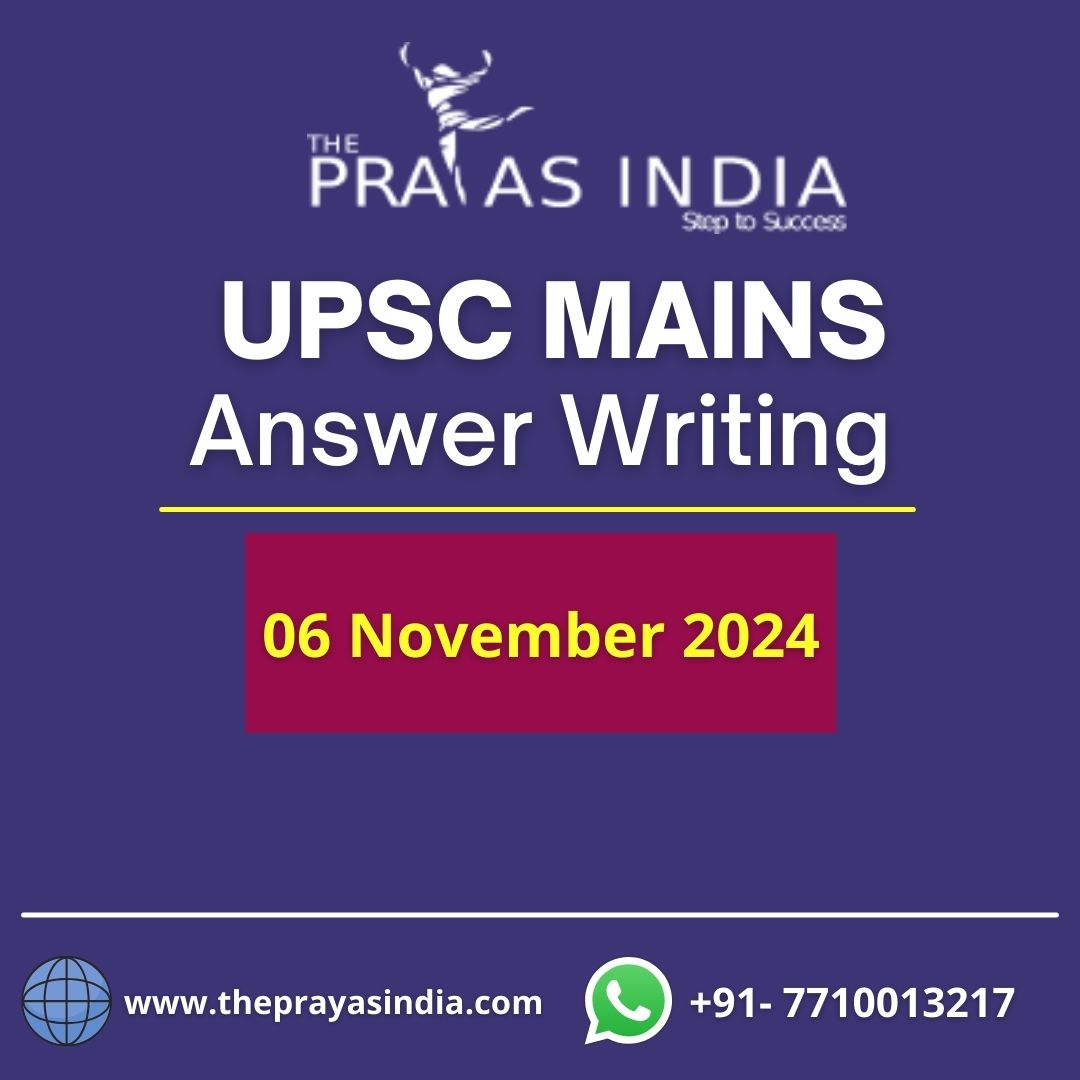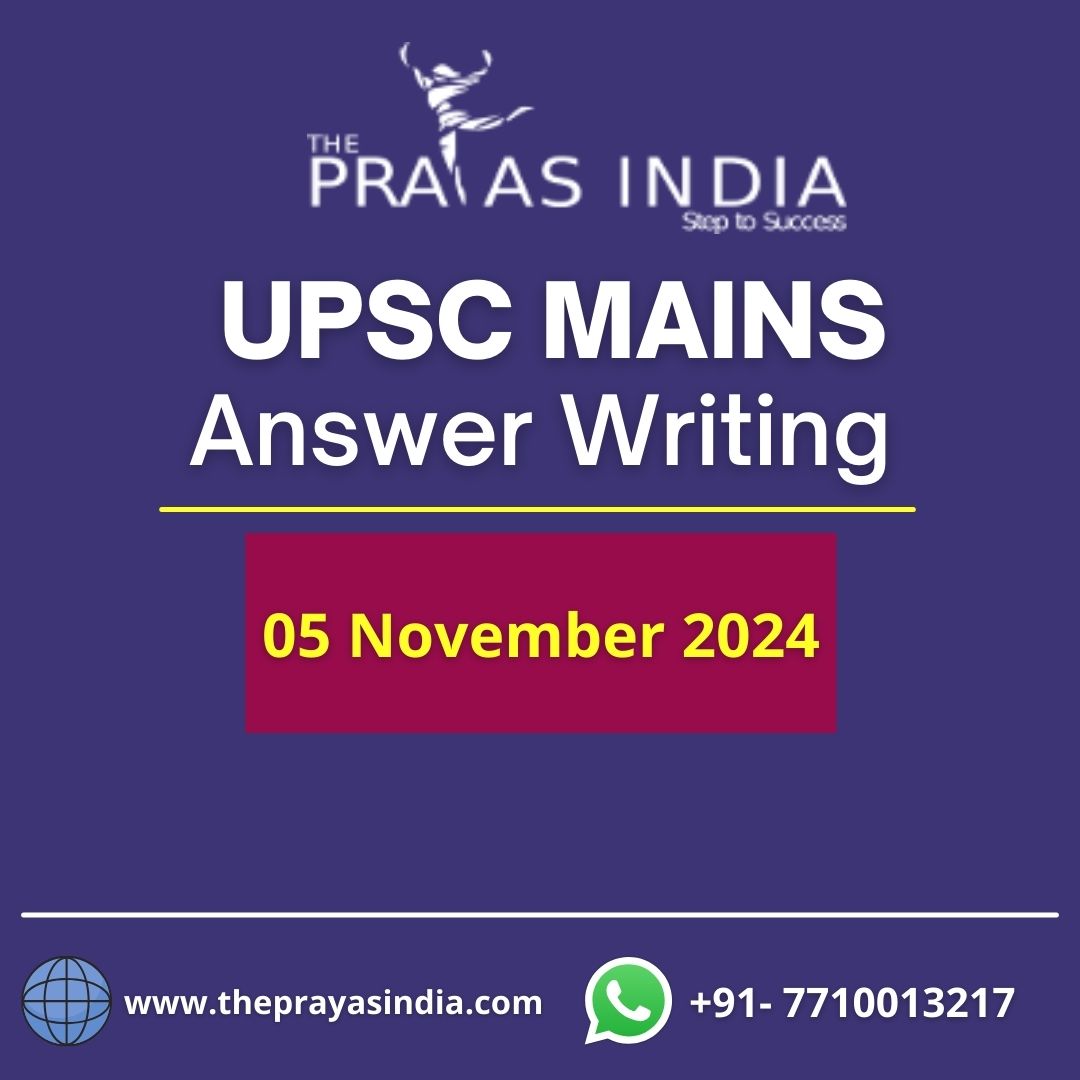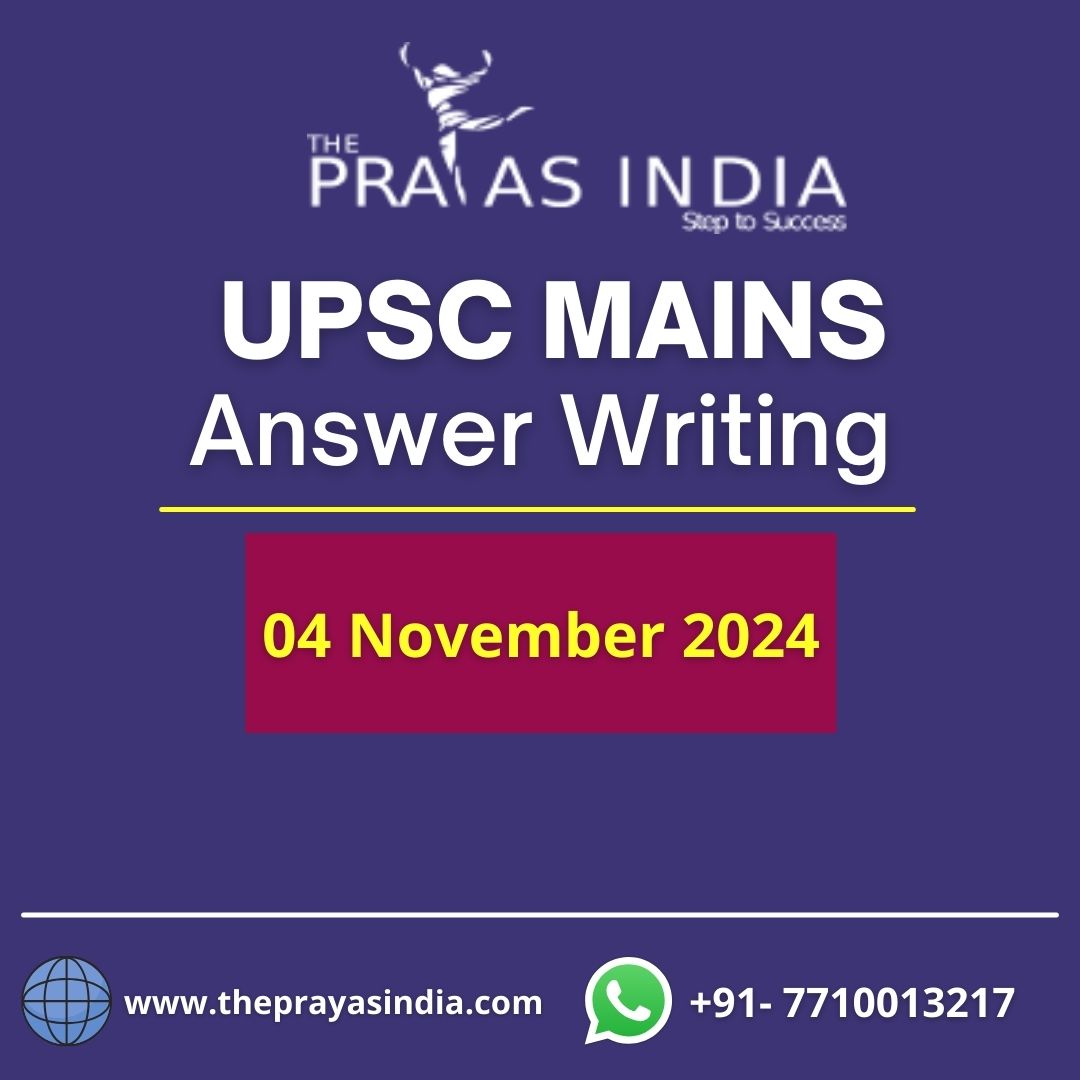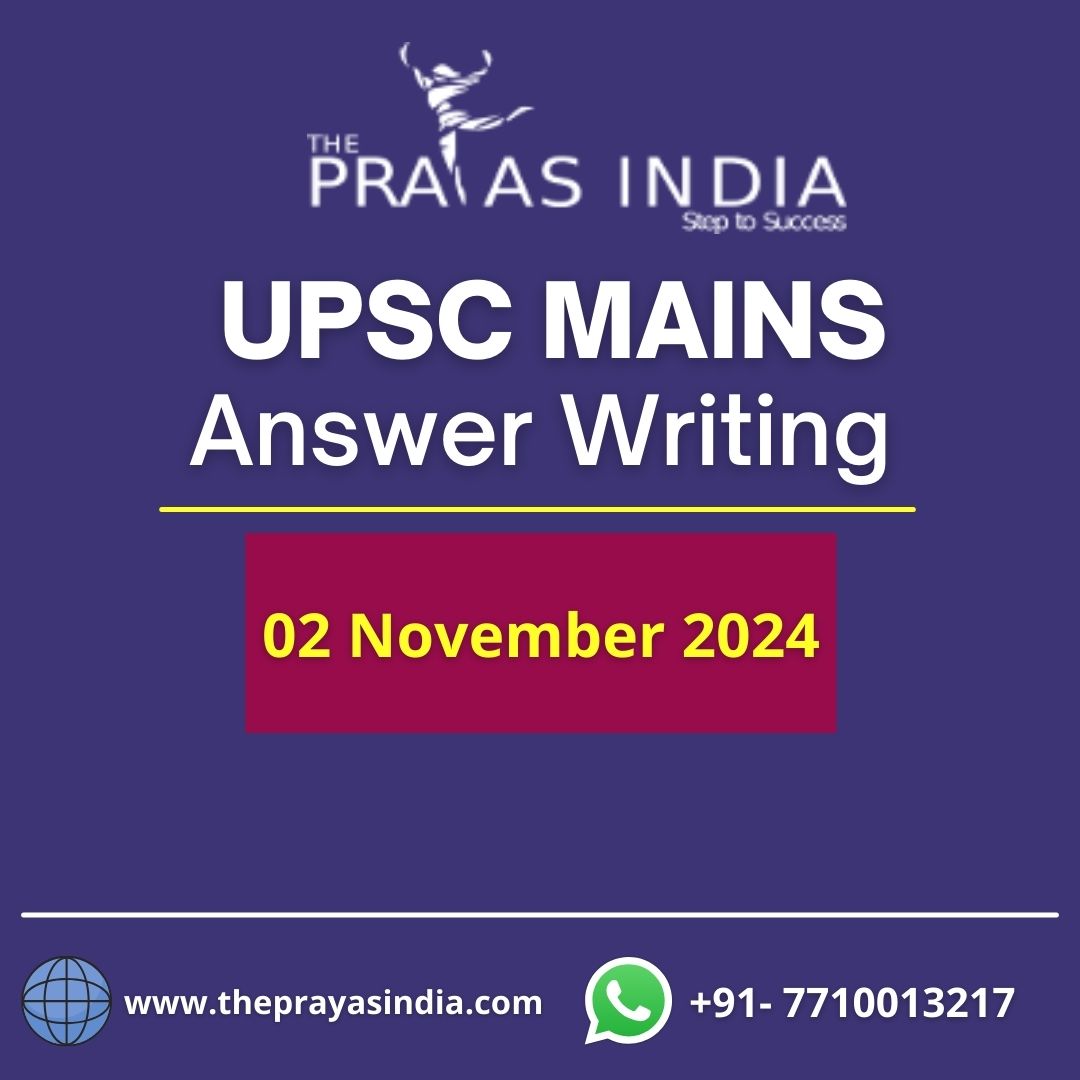MAINS DAILY QUESTIONS & MODEL ANSWERS
Q1. Discuss briefly the newly created post of Chief of Defence Staff.
Paper & Topic: GS III à Internal Security of India
Model Answer:
About CDS:
- Because of their anxiety that the armed forces would be exempt from the control of the civilian government, the bureaucracy took a very lengthy time to select a single commander for the armed forces and set up theatre commands. A position like that was expected to be ripe for coups.
- But in 2019, the Defense Ministry underwent a restructuring, and a new Department of Military Affairs was created under the supervision of the Chief of Defence Staff (DMA).
- The office’s mission is to make sure that the three services work together to maintain and repair equipment, communicate with one another, train, use logistics, and operate.
- The CDS performs both operational and administrative duties: He serves as the Union Defense Minister’s main military counsellor.
- He serves as the Chiefs of Staff Committee’s Permanent Chairman.
- Bipin Chandra Rawat was the first CDS in our country.
What makes this post important?
- Thanks to the establishment of the DMA under the CDS, the Defence Ministry’s bureaucracy is no longer in charge of joint planning, purchasing decisions, and nearly all other military-related duties.
- This is crucial given how the services previously operated in silos with decision-making authority held by Defense Ministry bureaucrats who usually lacked a thorough understanding of military matters.
- With the appointment of the first CDS, the military forces began contributing to the development of national security policies.
- Given the growing threats to India’s national security (Pakistan’s continued use of its PoK launch sites and China’s presence at the borders), the CDS is more crucial than ever. However, India’s defence budgets are also getting smaller, necessitating the employment of a single-point military adviser.
- The military is having a hard time adjusting to the government’s plans to lower, among other things, the number of soldiers, their pay, and their pensions. A CDS could aid in striking a balance between the objectives of the military and the requirements of the civilian government.
Q2. Highlight the role of sports in enhancing the soft power of India.
Paper & Topic: GS III à Internal Security of India
Model Answer:
About Soft Power:
- Political scientist Joseph Nye Jr. first used the term “soft power” in the late 1980s.
- It is “the power of seduction through culture, political principles, and policies rather than force” as opposed to “military hard power.”
- Through the years, India has used yoga, Bollywood, Sufi music, and shared traditions in the arts, cuisine, architecture, and even democratic ideals to demonstrate its soft power.
- Since winning big international athletic events increases a country’s soft power, nations, including India, have increased their investments in elite sports.
What role does sports play in the fight for soft power?
- The results of Professor Dongfeng Liu’s poll of French citizens regarding their opinions of China’s performance at the 2020 Olympics show that the nation’s sporting triumphs enhanced Chinese soft power.
- Despite this, the human rights records of nations like China, Russia, and North Korea prevent them from enjoying a wholly favourable reputation. As a result, it is extremely challenging for these nations to create their brands.
- However, these factors do not stop democratic nations like India from developing their soft power. However, we can better grasp how sports contribute to soft power by using China as an example.
- China has been fostering P2P relationships with other nations by utilising its achievements in elite sports. African sportsmen, for instance, train in China in sports like badminton, table tennis, and swimming.
- The whole populace benefits, and formal connections are strengthened as a result.
- In order for its athletes to train alongside Kenyan athletes, who are renowned for their better long-distance running skills, China has also inked MoUs with nations like Kenya.
- The organisation has even asked India for help in order to improve cricket.
- Huge crowds attend major sporting events, giving competing nations a stage on which to present their traditions, customs, and ideals.
- For instance, more than 3.05 billion people watched the Olympic Games in Tokyo, a 74% increase in digital viewers over the Rio Games in 2016. This demonstrates how utilising such occasions as a platform can greatly enhance soft power.
What is the current state of India in this regard:
- India has recently experienced a golden period in sports, as seen by its performances in the Olympics in Tokyo and the Commonwealth Games in Birmingham in 2022.
- The most recent games saw India earn seven medals, making them the most successful Olympic Games in its history.
- Neeraj Chopra, an Olympic gold medalist in the javelin throw, is now well-known.
- India returned home from the CWG with 61 medals, including 22 gold ones.
- These accolades provide the Indian people cause for celebration and showcase India’s soft power on the international arena, promoting further development toward the moniker of an important “geopolitical player.”




